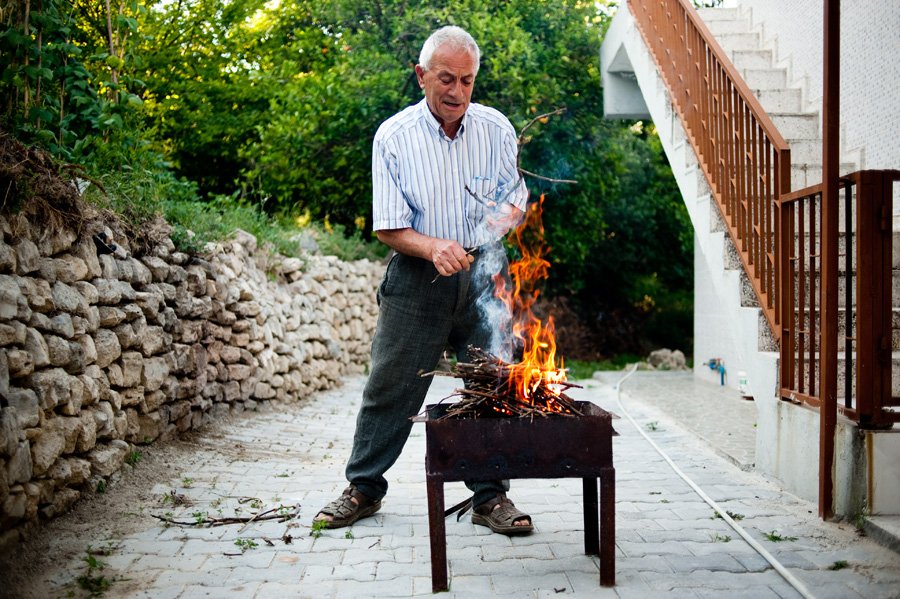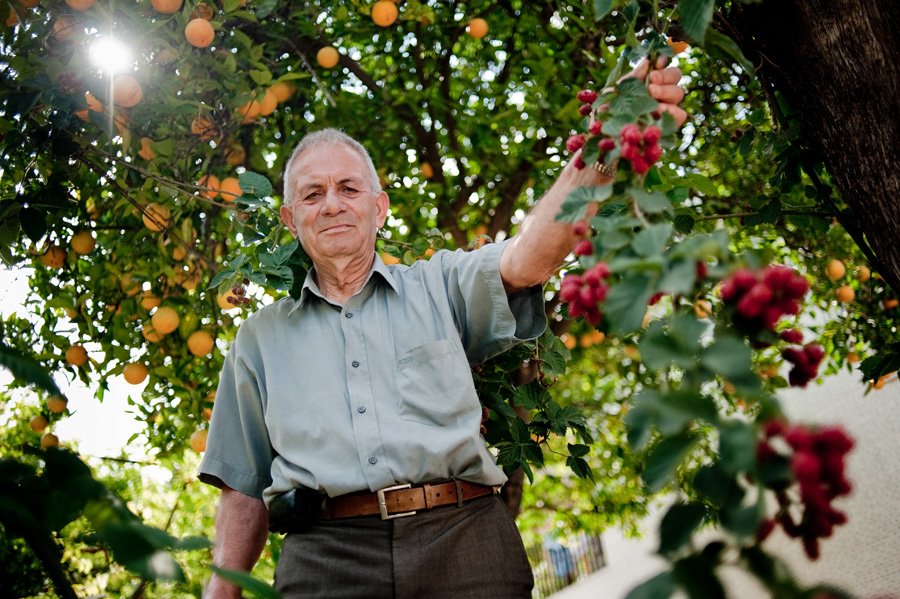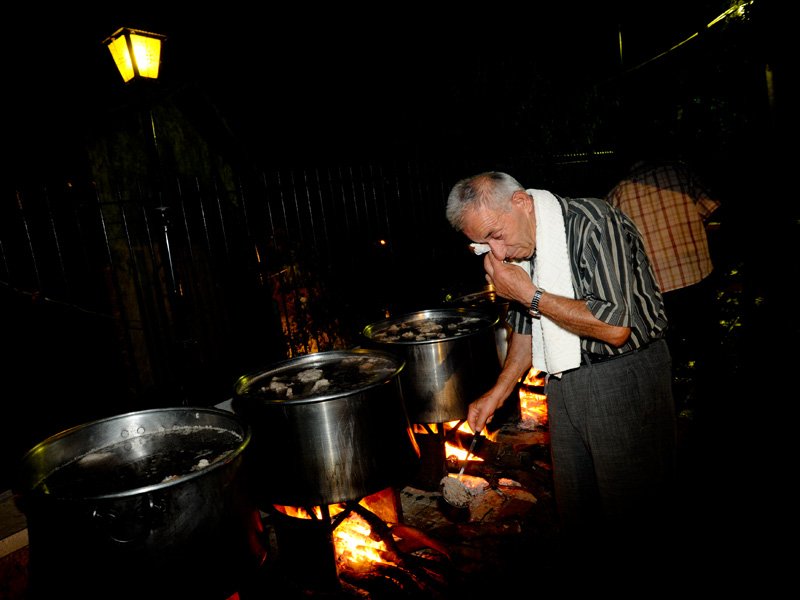 Ğevont lights up a grill for dinner.
Ğevont lights up a grill for dinner.
 Ğevont Kartun, 76.
Ğevont Kartun, 76.
After clamping a long white cigarette between his lips, Ğevont flicks a lighter a few times, waiting for it to catch. He takes a deep drag and leans back to look up at the calm blue sky. Smoke drifts up to curl around the glossy leaves of his fruit trees.
“It wasn’t enough [to keep me in Vakıflı],” he says, referring to his 3-acre orchard and his decision to immigrate to Germany in 1969.
He points out the tangerines from Rize and the May oranges, and he picks blackening mulberries to share. In the comfort of the soft dirt lie two cats, one orange and white, the other striped, curled up together. Ğevont hisses at them, but they merely eye him before returning to their slumber.
For a man like Ğevont, this small piece of land doesn’t fully satisfy his hunger for food and cooking, though it comes close. In the summer months when he lives in Vakıflı, he likes to grill meat on his side porch. He also helps to prepare harisa, a traditional lamb dish served during the Assumption of Saint Mary, an Armenian Orthodox holiday. Harisa takes hours to make, mostly at night; it’s hot business and hard work. Ğevont can usually be found with a towel slung across his shoulder, scooping foam from boiling water and pounding wheat into the tender lamb.
“I like to cook meat,” he says.
In the winter months, Ğevont lives in Berlin, where he owns an Indian restaurant. Ğevont opened it in 1975 when he was working at an asbestos factory. He felt that the food industry was better for him – as a man, as a provider and as a cook.
“It’s prosperous,” he says of his restaurant.
His chef there is Indian, as are his waiters, and they serve mainly rice and meat dishes. Though it took some doing, he managed to convince his Hindu chef that they needed to provide beef dishes for their customers.
“We do all kinds of meat. Even though the chef was reluctant to cook beef, I told him ‘We’ve got to do it.’”
When asked why he didn’t just open a Turkish restaurant, he answers with a shrug.
“I wanted to do something different.”
Now, at age 76, he splits his time between the two countries, the two cuisines and the two cultures. One thing, however, remains constant: his love of the kitchen.
“I can cook more kinds of food than a woman,” he says with a husky laugh.
 Ğevont wipes his eye during the communal cooking of harisa during the Feast of the Assumption of St. Mary and the Blessing of the Grapes. The fumes from the wood make the stirrers’ eyes water.
Ğevont wipes his eye during the communal cooking of harisa during the Feast of the Assumption of St. Mary and the Blessing of the Grapes. The fumes from the wood make the stirrers’ eyes water.